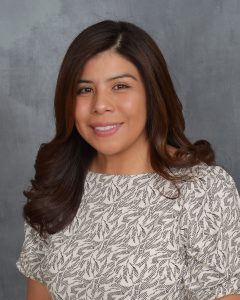According to the United States Census Bureau, Long Island is home to over 100,000 immigrants from El Salvador, Honduras and Guatemala. More than 42,000 are women between the ages of 18 and 74. These women work in our offices, in our local businesses and even our homes. Many of them are mothers who escaped violence or extreme poverty and came to Long Island to make better lives for themselves and their children.

Sandra Castro, PhD
But it can take years for a mother to get documentation for herself and her child. By the time they are finally able to reunite, the 5-year-old she left behind may now be a 15-year-old, or even a young adult with children of her own.
Sandra Castro, PhD, assistant dean of undergraduate programs in the College of Professional and Continuing Studies and an adjunct faculty member in the department of sociology, is focusing her research on learning the stories of these transnational mothers. In her current study, “Tears, Trauma and Transformation: Central American Mothers’ Experiences of Violence, Migration and Family Reunification,” Dr. Castro, who was born in El Salvador and raised on Long Island, interviewed 25 transnational mothers on how work, local suburban context and new family arrangements affect their experience of reunification.
The Sacrifices of Mothers and Children
Dr. Castro said some of these women shared how they’d suffered violence and abuse at the hands of traffickers during their journeys north, or in U.S. Immigration and Customs Enforcement (ICE) facilities once they arrived in the United States. Here on Long Island, they told of having to work two or three low-paying jobs to support both themselves and their families back home.
Meanwhile, their children experienced the trauma of being separated from their mothers and then adapting to different caregivers, the majority of whom are members of the extended family. In some cases, the children become attached to these family members and must go through a painful second separation when they leave to rejoin their mothers. “In other cases, mothers find out that their children were physically, sexually and/or verbally abused,” said Dr. Castro. “And that also adds on to the tremendous guilt that the mothers already feel about leaving their children.”
Another source of guilt for these mothers: Some find new partners in the United States and have children with them—children who have not endured separation and have had the advantages of being born in this country. “Although I think mothers love their children equally, they have more hope for their U.S.-born children, who are documented, who grew up here and speak English,” she said.
The Role of Education
Dr. Castro said these transnational mothers see education as being a game changer for all their children, but many districts aren’t prepared for these thousands of “new monolingual, Spanish-speaking students who may not be up to grade level because maybe they didn’t go to school in their native countries,” she said. “Some schools have brought in resources, such as bilingual teachers, psychologists and social workers. Others have not been as compliant and make it difficult for these mothers, even those who live in the district, to enroll their children, or they don’t do anything for them once they’re enrolled. Students sign in and are sent to the cafeteria or the gym for that day. We really need to address this issue.”
Finding Answers in Research
What does Dr. Castro hope her study will accomplish? “I hope that this research brings to light the struggle these women have gone through in terms of their migration, the separation, the trauma, the violence, then living here and trying to survive and now having to manage reuniting with and raising their children,” she said. “I want us to recognize these women are survivors—many who have experienced trauma become advocates for not only themselves and their children but for other immigrant women, domestic workers and domestic violence survivors. I hope that social work and social service groups and organizations develop programs and policies to address the unique needs of these Central American mothers who want the same thing that any mom wants—the best for their children. And the children are eager to start their new lives here and integrate, and it’s just hard. It’s not the same for a 16-year-old as it is for a 5-year-old.”
Dr. Castro talks about her research, getting her PhD and her role as assistant dean in this article on the CUNY Graduate Center website.